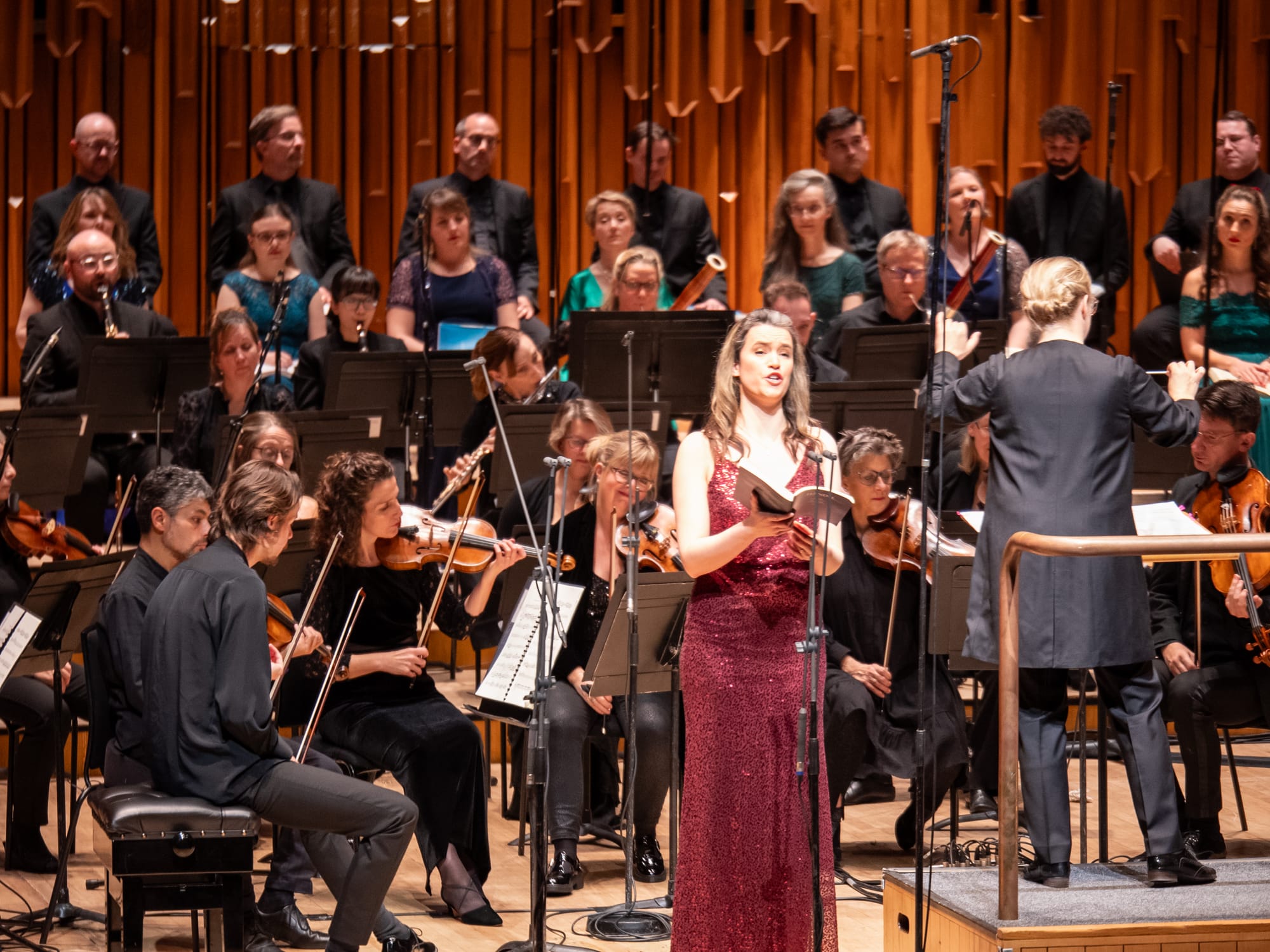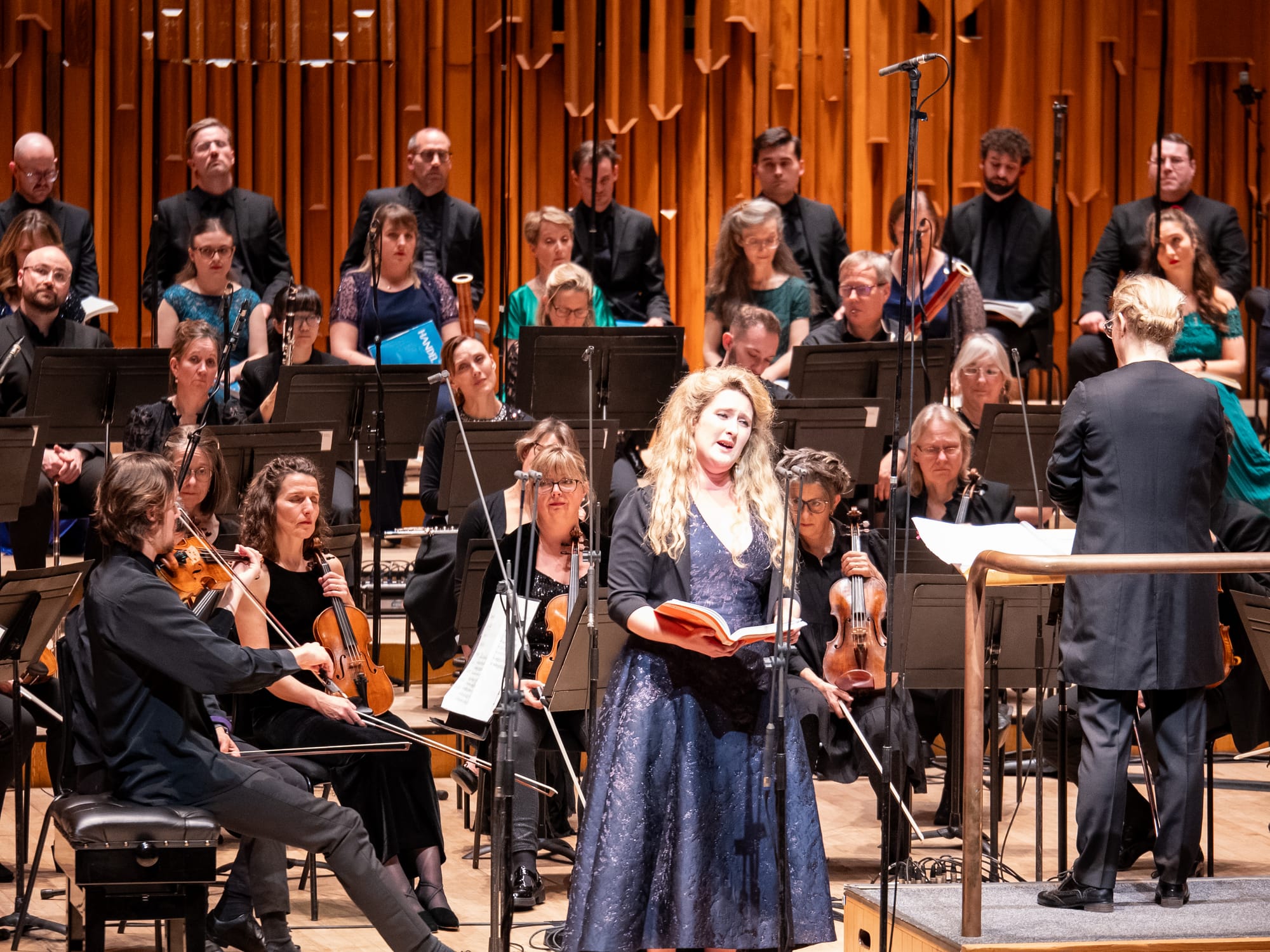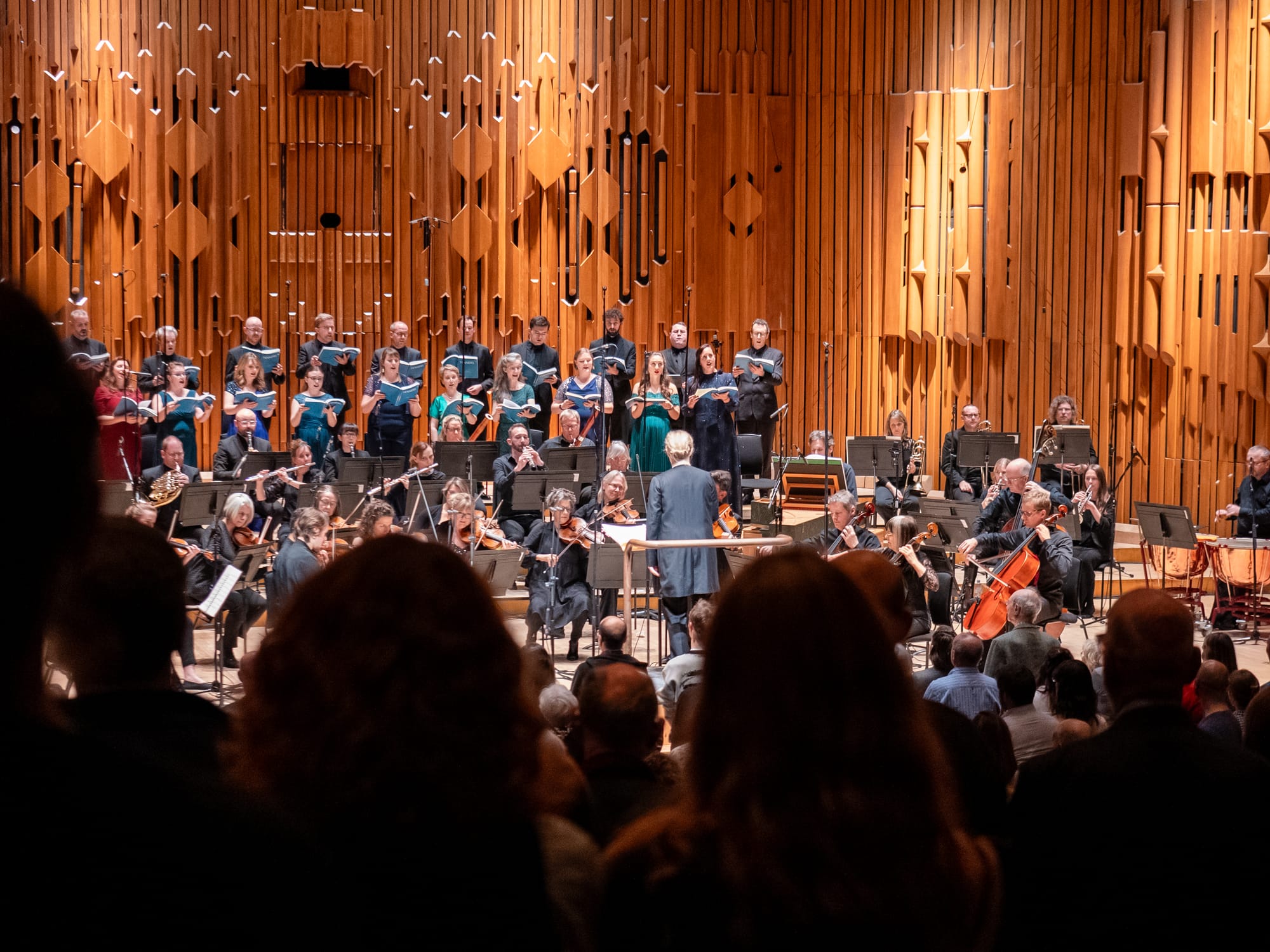Handel / Mozart's Messiah at the Barbican

Handel / Mozart / Manners Messiah, HWV 56 / K 572 (sung in English). Hilary Cronin (soprano); Helen Charlston (alto); Laurence Kilsby (tenor); Morgan Pearse (bass); BBC Singers; Britten Sinfonia / Sofi Jeannin (conductor). Barbican Hall, 12.12.2023
Two Messiahs this year for me, neither ‘pure’. The first was accentus and Insula’s spectacular but abridged performance at La Seine Musicale (review), an evening I shall not forget in a hurry; now, Mozart’s edition, but performed in English, not German, and with tweaks (‘The Trumpet Shall Sound’ is shared between trumpet and horn in Mozart’s take, and was restored to trumpet – here, the excellent Imogen Whitehead).
It’s all Baron Gottfried von Swieten’s fault: he presented the Viennese premiere of Messiah and commissioned Mozart to do the honours. Or, alternatively, we have von Swieten to thank for Mozart’s alternative, depending on one’s viewpoint. What was given at the Barbican was a step further than Mozart - ‘an edition should exist which works in conjunction with the most commonly used vocal scores of the Handel edition’. Jonathan Masters therefore dispensed with Friedrich Gottlieb Klopstock and Christoph Daniel Ebeling’s German translation. Allocations of solos followed ‘the most commonplace in modern performance’
There was much to bring one out on a chilly December evening. Both the BBC Singers and the Britten Sinfonia have had quite the year: the political climate is no more clement than the prevailing cold outside the Barbican. And indeed, both groups were very fine, with the tenors of the BBC Singers in particular covering themselves in glory. Handel’s love for semiquavers at speed posed few problems for the choir under their current Chief Conductor, Swedish-born Sofi Jeannin (who is also Music Director of the Maîtrise de Radio France; she was previously Music Director of Choeur de Radio France, 2015-18). Jeannin knows what she wants, and the BBC Singers responded in kind. Synchronisation between choir and orchestra was generally good (unfortunately the major offender here was the very final chorus, ‘Worthy is the Lamb’)
It was Mozart’s edition that was the draw for this listener. The sound of the Overture was decidedly warm, timbrally speaking, as one might expect; but performing on modern instruments adds another layer of distance, another cranking up of the warmth to more of a cushioning of Handel’s original. It remained interesting, however, not least in the use of trombones, which brought in thoughts of Zauberflöte - so much so that when the Allegro of the Overture got going one almost expected a cantus firmus cutting through the activity sung by two Armed Men ….
Mozart’s tinkerings offer much of interest, for sure. The woodwind trills in the alto air, ‘But who may abide’ is one, while the brass additions to ‘For unto us a child is born’ (particularly trumpet and drums at ‘Wonderful’) are fascinating and effective, and there is a wonderful bassoon obbligato in the tenor’s ‘But thou didst not leave’ in the second part (superbly delivered by Sarah Burnett, garnished by the flute of Emer McDonough). But whether the chugging woodwind in ‘All we like sheep’ passes muster after the initial eyebrow-raise is another thing …
What was really missing was the differentiation of colour, on either local or global levels. There was light, though, from most of the soloists. Helen Charlston is the known quantity here, and she excelled, glorious in ’O thou that tellest good tidings to Zion’’. Her voice complemented the gleamingly pure soprano of Hilary Cronin, something that became crystal clear at the end of the first part of the oratorio.

Cronin is one to watch: her ‘Rejoice greatly’ was open-voiced, agile and very, very accurate. She won both First Prize and Audience Prize at the 2021 London Handel International Singing Competition and it is no surprise that she will sing a major (and fascinating) Handel role in the 2024 Handel London Handel Festival: the title role in the rarely-heard Adrianna in Creta, HWV 32 (St George’s, Hanover Square, albeit in concert performance: April 20, 2024). On the evidence of this Messiah, it should be well worth catching (Cronin has already recorded the small role of Second Lady in Dido Purcell - with Helen Christensen as Dido - on Pentatone, with La Nuova Musica and David Bates).
Often, one wishes the soprano had more airs in Messiah; this time, one wanted to hear more of the tenor, Laurence Kilsby, to whom it fell to kick the whole thing off, post-Overture, with ‘Comfort ye’ and ‘Ev’ry Valley’. Kilsby, an alumnus of the RCM in London and the Curtis Institute in Philadelphia, is another young singer with a fine future ahead. While I might have been underwhelmed by his contribution to the Pygmalion Mozart Requiem at the Proms this year (review), this seemed to be the polar opposite. He is a subtle singer with a simply lovely tone.
Morgan Pearse was listed as both bass and baritone ((he is listed in the programme as a bass in big letters then directly underneath as a baritone – he's a baritone). Perhaps it was a clue that his voice might not as been at its most comfortable here . I very much enjoyed Pearse‘s Figaro Barber at ENO in 2017. Frankly here, though, his contribution to ‘The trumpet shall sound’ was way too nice for Judgement Day, while the immediately preceding ‘Behold, I tell you a mystery’ was lacking in just that mystery. Another ‘behold,’‘For behold, darkness shall cove the earth’ was rather superficial at one of the work’s most crucial moments; to balance it out, Pearse’s immediately following ‘The people that walked in darkness’ was his finest moment, nicely focused.

Overall, the parts did not add up to a greater whole, though, that was the issue. Messiah is long, but should not feel so. There seemed pronounced restlessness in the audience: phone alarms repeatedly going off, supermarket bags all a-rustle, and stereophonic bronchials. It is the season for the last, of course, but part of me wondered if the prevailing unrest was a result of the performance not quite settling. The outdated custom of standing for the ‘Hallelujah’ chorus hardly helps (see this article for some reasons for why King George II stood in the first place: gout? pins and needles? ...).
It is true there are other versions of Messiah, too: Marin Alsop’s Gospel Messiah (arranged Bob Christianson and Gary Anderson) or Sir Andrew Davis’ full symphony orchestra version. But Mozart being Mozart, this had its own appeal, and I am glad I heard it, despite a lingering feeling of some dissatisfaction in teh .
In terms of recordings, try the Erato with Corboz and the Lausanne forces:

